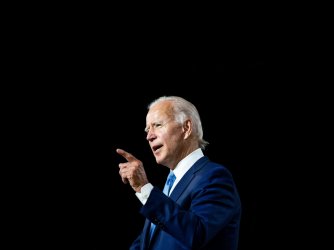Table of Contents
The Problem with Mandating Civility
FIRE is often referred to as a "watchdog" organization, and that is indeed an important part of what we do. But those who follow our work know that we also love to reward schools for upholding students' free speech rights. That is why when a university earns a "green light" rating—a distinction currently awarded to just 15 out of the hundreds of schools we survey—FIRE does as much as possible to ensure that good news receives the maximum publicity. For example, we publish an annual list of the best colleges for free speech on The Huffington Post.
In the last few years, an increasing number of schools have seen the advantages of "going green." Since October 2009, six universities—Arizona State University, James Madison University, Mississippi State University, The College of William & Mary, the University of Mississippi, and the University of Virginia—have eliminated all of their troublesome speech codes and earned a green light from FIRE.
In the coming year, we hope to see even more schools take this leap. In fact, there are currently a number of schools that are very close to earning green lights but are falling short because of just a few problematic policies. Most of these policies could be very easily corrected, and are similar to policies in force at so many other schools around the country.
To encourage these and other schools to go green, this fall FIRE is going to be publishing a blog series about some of the most common problems we see in campus speech codes, discussing how our "close to green" schools and others can correct these errors so as to better protect free speech on campus.
This blog entry, the first in our series, is about how universities' misguided efforts to mandate civility on campus threaten student speech. While it is understandable that universities want to maintain a civil and respectful campus environment, most speech and expression that is "uncivil" or "disrespectful" is nonetheless constitutionally protected.
Perhaps the most eloquent recent explanation of why requiring civility and respect violates the right to free speech was written by U.S. Magistrate Judge Wayne Brazil in the case of College Republicans at San Francisco State University v. Reed, 523 F. Supp. 2d 1003 (N.D. Cal. 2007). Although we have quoted Judge Brazil's opinion many times on these pages, there remains no better way to explain it:
Speakers, especially speakers on significant or controversial issues, often want their audience to understand how passionately they feel about their subject or message. For many speakers on religious or political subjects, for example, having their audience perceive and understand their passion, their intensity of feeling, can be the single most important aspect of an expressive act. And for many people, what matters most about a particular instance of communication is whether it inspires emotions in the audience, i.e., whether it has the emotional power to move the audience to action or to a different level of interest in or commitment to an idea or cause. For such people, the effectiveness of communication is measured by its emotional impact, by the intensity of the resonance it creates.
How is all this relevant to our review of the University's civility requirement? Civility connotes calmness, control, and deference or responsiveness to the circumstances, ideas, and feelings of others. ... Given these common understandings, a regulation that mandates civility easily could be understood as permitting only those forms of interaction that produce as little friction as possible, forms that are thoroughly lubricated by restraint, moderation, respect, social convention, and reason. The First Amendment difficulty with this kind of mandate should be obvious: the requirement "to be civil to one another" and the directive to eschew behaviors that are not consistent with "good citizenship" reasonably can be understood as prohibiting the kind of communication that it is necessary to use to convey the full emotional power with which a speaker embraces her ideas or the intensity and richness of the feelings that attach her to her cause. Similarly, mandating civility could deprive speakers of the tools they most need to connect emotionally with their audience, to move their audience to share their passion.
In sum, there is a substantial risk that the civility requirement will inhibit or deter use of the forms and means of communication that, to many speakers in circumstances of the greatest First Amendment sensitivity, will be the most valued and the most effective.
The fact remains, however, that policies mandating civility and respect are some of the most common speech codes on campus today, even at universities that maintain very few speech codes. Washington & Lee University's Statement on Student Behavior, for example, provides that:
Washington and Lee University expects an atmosphere of civility and mutual respect to prevail. ...
Although the university encourages students to first attempt to resolve instances of incivility informally, it states that "[i]f such direct efforts do not resolve the matter, instances of uncivil behavior involving students may be reported to the Associate Dean of Students for Student Conduct."
Similarly, the University of Pittsburgh requires students to accept a "Commitment to Civility" which requires (among other things) that students take the following pledge: "I accept a moral obligation to behave in ways that contribute to a civil campus environment and resolve to support this behavior in others. This commitment to civility is my promise to the University of Pittsburgh and its community of scholars."
Haverford College's Honor Code requires students to abide by a set of vaguely defined "community standards," which seems to include "respectful expression of values." The code further provides that:
Upon encountering actions or values that we find degrading to ourselves and to others, we should feel comfortable initiating dialogue with the mutual goal of increasing our understanding of each other. ... If it becomes clear through self-reflection or through expressions of concern by others, that either our academic or social conduct represents a violation of community standards, we are obligated to report our own breach to Honor Council, even if doing so may result in a trial and the possibility of separation from the college.
Policies like these, while well-intentioned, pose a threat to the kind of open and unfettered dialogue that should be the hallmark of the college campus.
Fortunately, the solution is simple. While universities cannot require civility, they are certainly free to encourage it. Therefore, schools with civility policies must include language making clear that the policy is aspirational in nature and does not actually restrict student speech.
A perfect example of such language comes from Penn State's "Penn State Principles," which—much like the policies cited here—asks students to "respect the dignity of all individuals within the Penn State community." Unlike the policies cited here, however, the Penn State Principles contains the following statement:
The Penn State Principles were developed to embody the values that we hope our students, faculty, staff, administration, and alumni possess. At the same time, the University is strongly committed to freedom of expression. Consequently, these Principles do not constitute University policy and are not intended to interfere in any way with an individual's academic or personal freedoms. We hope, however, that individuals will voluntarily endorse these common principles, thereby contributing to the traditions and scholarly heritage left by those who preceded them, and will thus leave Penn State a better place for those who follow.
Any university with a civility policy would do well to keep in mind Judge Brazil's words and to revise their policy to make clear that it only aspirational and that protected speech will not be punished.
Look out for more entries in this blog series in the weeks to come. And if you are a student or administrator who wants to help your school become FIRE's next green light institution, be sure to also check out FIRE's guide to Correcting Common Mistakes in Campus Speech Policies, which is available on our website.
Recent Articles
FIRE’s award-winning Newsdesk covers the free speech news you need to stay informed.

TikTok legislation sets grave precedent for free speech

FIRE joins animal advocates, free speech groups urging Ninth Circuit to affirm ruling that allows undercover audio recording

Louisiana Tech earns top rating for free speech
